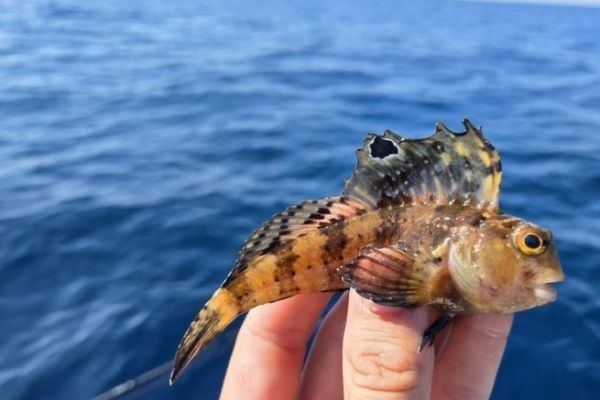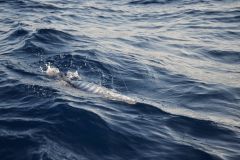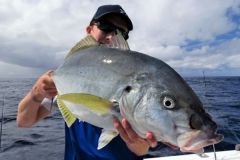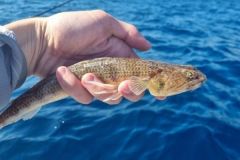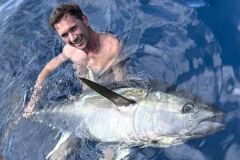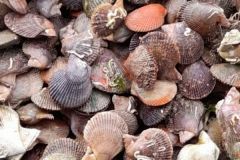Description of the butterfly blenny
The size of the ocellated blenny or butterfly blenny is generally between 8 and 15âeuros¯cm (maximum 20âeuros¯cm). Its body is elongated, laterally compressed and scaleless. It has a short, massive head, large eyes and marked dentition for such a small fish.
The anterior part of its long dorsal fin is very high and adorned with a black ocelli circled in white, hence its name "butterflyâeuros¯". Its body features 5 to 6 broad, dark vertical stripes on a brown-green background, and fleshy tentacles above the eyes.
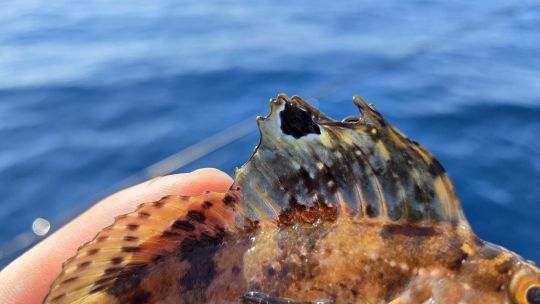
Ocellated whitethroat habitat
Ocellated or butterfly blennies are widely distributed. It can be found in the Atlantic (from Morocco to the south of Great Britain), the English Channel, the Mediterranean and as far south as the Black Sea. It frequents soft bottoms (sandy-muddy, shell sand, coralligène). It can be found from shallow depths (25-30âeuros¯m) to around 400âeuros¯m.
Biology and life cycle
The diet of the ocellated blenny consists mainly of small invertebrates.
Reproduction: Eggs are laid in spring and summer (April to July, depending on latitude). Eggs adhere to shells or under stones, guarded by the male. The larvae are planktonic and live in coastal areas.
Possible confusions
A species that can be confused with the gattorugine blenny (Cabot), but the latter doesn't have a large dorsal fin adorned with a black spot.
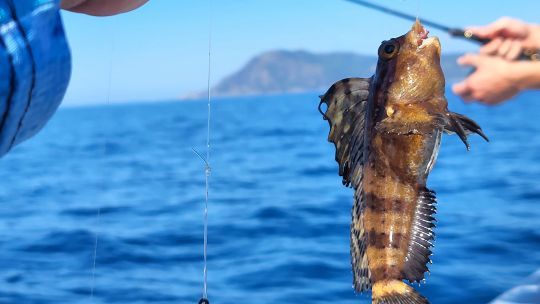
Fishing for ocellated or butterfly blennies
It's very difficult to target the ocellated blenny precisely when fishing. They are mainly nocturnal, remaining hidden during the day and active at night, making them an infrequent catch for anglers. It's always a nice surprise to find such a fish at the end of your line, and to discover the richness of a marine fauna that is sometimes unsuspected.
The ocellated blenny is a nocturnal fish, with a high dorsal fin marked by a typical black ocelli, living on soft bottoms from the Atlantic to the Mediterranean. A discreet but easily identifiable species, it plays a small role in the benthic food chain and is harmless to humans, although its bite can be painful...

 /
/ 